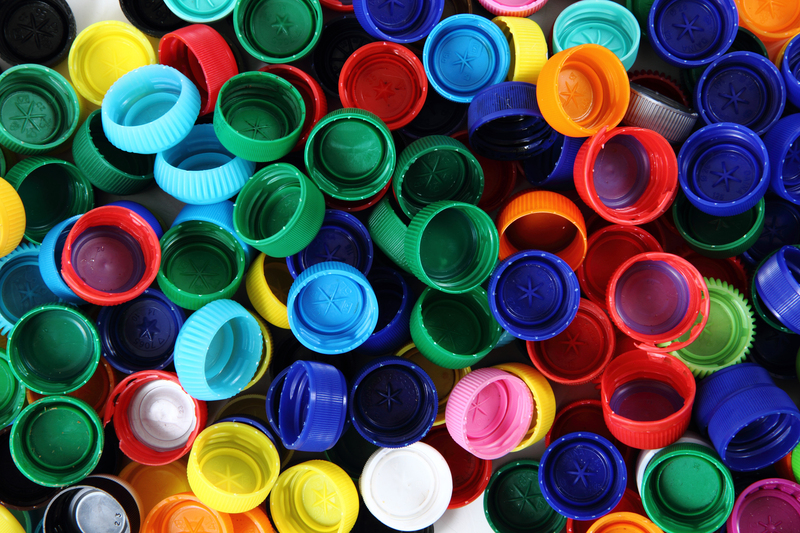Innovative Ideas to Reduce Waste at Home
Reducing waste at home has become a priority for families and individuals aiming for more sustainable lifestyles. Not only does waste reduction help the environment, but it can also save money and foster a tidy, organized living space. If you're looking for creative solutions to minimize waste at home, you've come to the right place. This comprehensive guide unveils innovative ideas to reduce household waste, provides actionable tips, and encourages adopting eco-friendly habits that make a real difference.

Why Is Reducing Household Waste Important?
The average person generates a significant amount of waste each year, much of which ends up in landfills or pollutes the natural environment. Household waste management is crucial for:
- Protecting natural resources
- reducing carbon footprint
- limiting landfill use
- saving money on disposal costs
- encouraging responsible consumerism
Embracing zero-waste ideas for your home is one of the best ways to contribute to a healthier planet. Let's explore some fresh eco-friendly waste reduction strategies you can implement right now.
1. Reimagine Food Storage to Cut Down on Waste
Switch to Reusable Containers
One of the quickest ways to reduce waste at home is reevaluating how you store food. Replace single-use plastic wraps and bags with durable, reusable containers. Opt for glass, silicone, or stainless-steel options which last much longer and don't leach harmful chemicals.
- Use beeswax wraps instead of cling film for sandwiches or leftovers
- Embrace silicone zip bags
- Select glass jars for pantry storage
Master Leftover Management
Too much edible food gets thrown away due to poor storage. Avoid this by organizing your fridge with a "use me first" zone for items that need to be consumed soon. Keep track of what's leftover and incorporate it into your next meal.
Compost Food Scraps
Instead of tossing fruit peels, coffee grounds, and vegetable trimmings, set up a home compost. Composting not only minimizes kitchen waste but also produces rich soil for houseplants or gardens.
2. Rethink Your Shopping Habits
Buy in Bulk
Bulk buying allows you to reduce packaging waste significantly. Bring your own bags and containers to local stores and fill up on dry goods like pasta, rice, nuts, and grains. Many stores also offer cleaning products, oils, and even snacks in bulk.
Choose Minimal Packaging
When bulk isn't an option, be mindful of packaging. Prefer products with compostable, recyclable, or no packaging at all. Support brands that invest in environmentally-friendly packaging.
Embrace Secondhand
Buying secondhand is an excellent zero-waste strategy. From furniture to clothing and electronics, explore thrift stores, online marketplaces, and swap groups before buying new.
3. Innovate in the Kitchen
Make DIY Cleaning Products
Instead of purchasing multiple plastic bottles filled with chemicals, craft your own all-purpose cleaners using natural ingredients such as vinegar, baking soda, and essential oils. Store them in reusable spray bottles.
Reduce Food Waste Creatively
- Try "root-to-stem" cooking - use carrot tops for pesto, broccoli stems in slaw, or citrus peels for zest
- Repurpose leftovers into new meals (e.g., old bread for croutons)
- Preserve surplus produce by freezing, canning, or drying
Invest in Quality Appliances
High-quality kitchen gadgets, such as blenders or slow cookers, help you make the most of ingredients and avoid food spoilage. These upgrades also tend to last longer, reducing electronic waste over time.
4. Streamline Bathroom and Cleaning Routines
Switch to Refillable and Reusable Products
- Refillable soap dispensers instead of single-use bottles
- Reusable makeup remover pads or cloth wipes
- Bamboo toothbrushes and compostable floss
- Bar soaps and shampoos in recyclable packaging
These simple swaps significantly reduce plastic waste in bathrooms and support a greener lifestyle.
Embrace Laundry Innovations
- Eco-friendly laundry detergent strips
- Wool dryer balls instead of single-use dryer sheets
- Cold wash cycles to save energy and water
5. Reduce Paper and Packaging Waste
Go Digital
- Switch to electronic bills and statements
- Use note-taking apps instead of paper notebooks
- Sign up for paperless subscriptions
Reuse and Upcycle Packaging
- Save sturdy boxes and bubble wrap for shipping or storage
- Get creative with gift wrapping, using old newspapers, magazines, or fabric scraps
- Repurpose glass jars for organizing, plant pots, or candle holders
6. Green Your Home Office
Print Smart
- Print double-sided to halve paper use
- Reuse scrap paper for notes or lists
- Select recycled or FSC-certified printer paper
Dispose of Electronics Responsibly
When upgrading devices, recycle old electronics at certified e-waste centers. Donate working computers, phones, or printers to charities or schools to extend their use.
7. Foster Community Waste Reduction
Host Clothing or Toy Swaps
Invite neighbors and friends to exchange items that are no longer needed. Community swaps help everyone save money, declutter, and reduce overall consumption.
Participate in Neighborhood Compost Programs
If you don't have space to compost at home, check for municipal or neighborhood composting initiatives. Many communities offer curbside collection or communal bins for food scraps and yard waste.
8. Reduce Waste with Smart Home Technology
Use a Smart Inventory System
Install a smart fridge organizer or pantry tracker to monitor food supplies, expiry dates, and reduce overbuying, which often leads to waste.
Install Water-Saving Devices
- Low-flow showerheads and faucets cut down on water waste
- Smart irrigation systems for gardens
- Leak detectors identify and prevent costly water waste
9. Practice Conscious Consumption
Adopt the "Buy Less, Choose Well" Mindset
Before bringing new items into your home, ask yourself:
- Do I truly need this?
- Can I borrow, rent, or share instead?
- Is it built to last and repairable?
- What will happen to it at the end of its life?
Follow the 5Rs: Refuse, Reduce, Reuse, Recycle, Rot
- Refuse items you don't need (plastic straws, freebies, excess packaging)
- Reduce consumption where possible
- Reuse containers, bags, and other products
- Recycle correctly to prevent contamination
- Rot (compost) organic waste
10. Engage the Whole Family in Waste Reduction
Make Waste Reduction a Fun Family Project
- Set up recycling bins with clear labels
- Host regular decluttering sessions and donate or upcycle unused items
- Educate children about environmental impacts through games, crafts, or books about sustainability
- Turn zero-waste living into a monthly challenge -- see who can create the least trash

Frequently Asked Questions: Smart Waste Reduction at Home
What are the easiest ways to cut down on waste at home?
Start with simple swaps such as reusable shopping bags, water bottles, and containers. Composting kitchen scraps and switching to digital bills are also quick wins.
How can I reduce plastic waste in the kitchen?
Replace single-use plastics with glass or stainless-steel storage, silicone baking mats, and beeswax wraps. Buy bulk foods and avoid products with excessive packaging.
Is household composting difficult?
Not at all! Use a countertop bin for scraps and an outdoor compost pile, or look for small indoor systems suitable for apartments.
What should I do with hard-to-recycle items?
Check local recycling programs for options. Many cities accept items like batteries, electronics, and plastics at special drop-off locations.
Conclusion: Start Your Low-Waste Journey Today
By incorporating these innovative ideas to reduce waste at home, you can play a pivotal role in creating a more sustainable future. Remember, every small step counts. Whether it's using less plastic, composting kitchen scraps, or teaching your kids about recycling, the choices you make at home ripple out into your community and the planet.
Ready to embrace creative waste reduction strategies? Commit to one or two changes today, and watch as your home becomes greener, cleaner, and more resourceful. Share your progress and inspire others to join the movement--because together, every effort matters.